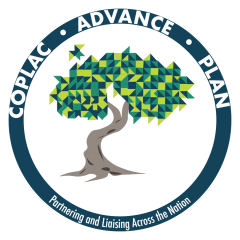Project Overview
COPLAC members, like other institutions, face particular challenges that—often unwittingly—contribute to inequities in the career success and advancement of their STEM faculty. Elements such as gender identity, age, nationality, race, sexual orientation, disability, and socio-economic background are often-overlooked factors that can heighten inequality.
Many of the COPLAC institutions are small and geographically isolated. Many of the women and professors from underrepresented groups are the only specialist in their discipline or the only person of their gender or identity in their department, university, or region. Connecting these people at COPLAC institutions with each other will help to alleviate some of that isolation.
The COPLAC ADVANCE PLAN has two objectives:
- Create institutional change within COPLAC by training both women and men administrators and department chairs to recognize bias, identify intersectional policies, and solve issues that contribute to gender inequities in STEM. Training will consist of professional development and gender-equity workshops conducted at the COPLAC annual meeting, said Pogozelski, and training materials will be broadly disseminated and applicable to many other institutions.
- Provide professional support and networking to women STEM faculty through interest-based affinity groups within COPLAC to foster community, empowerment, research collaboration, mentoring, and solutions to overcoming gender-based barriers to career advancement.
Data Collection
Observational data and feedback surveys will help both tailor the training and assess its impact throughout the consortium. In addition, a series of research questions for both the professional development workshops and the affinity groups will address factors influencing the recruitment, retention, and advancement of women in STEM. The intent is to publish the findings and contribute to the understanding of the policies and factors that support the success of women and underrepresented groups.
 ADVANCE
ADVANCE
Increasing the participation and advancement of women in academic science, technology, engineering, and mathematic careers.
In 47 states, the District of Columbia and Puerto Rico, more than 160 different institutions of higher education and non-profit organizations have received ADVANCE grants totaling over $270M between 2001 and 2016.
NSF ADVANCE funding opportunities (NSF 16-594): INSTITUTIONAL TRANSFORMATION (IT) supports development of innovative organizational change strategies to enhance gender equity in STEM academics in non-profit institutions of higher education. Projects must include comprehensive evaluation and rigorous social science research. All non-profit institutions of higher education that have not had a previous IT award are eligible to apply.
ADAPTATION supports adaptation and implementation of proven organizational and systemic change strategies for specific issues of gender inequity supported by an analysis of relevant data. These awards may be made to a single non-profit academic institution or organization that has not had an ADVANCE IT award.
PARTNERSHIP supports projects involving two or more non-profit academic institutions and/or STEM organizations to undertake systemic change projects to enhance gender equity in STEM academics. Projects can focus on one or multiple STEM disciplines and should have national or regional impact. Partners should be strategically selected to meet project goals.
NSF ADVANCE website: http://www.nsf.gov/advance
Other Institutional Transformation projects (cohort 9- awarded 2018):
